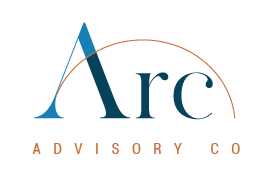With the Release of SOP 50-10 7, the Small Business Administration has made a deep understanding of business valuation critical to an effective wealth management strategy for small business owners and their advisors. BizEquity’s Chief Valuation Officer, Scott Gabehart, breaks down the changes and their implications.
First, What Are the Changes?
On Wednesday, May 10, 2023 the Small Business Association (SBA) issued version 7 of SOP 50 10, entitled, Lender and Development Company Loan Programs which will take effect on August 1, 2023. The new SOP continues SBA’s implementation of a number of regulatory changes including:
The Final Rule on Affiliation and Lending Criteria for the SBA Business Loan Programs [88 FR 21074, issued effective 5/11/2023]
Note: This change potentially opens the door for larger entities to take advantage of guaranteed financing.
The Final Rule on Small Business Lending Company (SBLC) Moratorium Rescission and Removal of Requirement for a Loan Authorization (“Final Rule on SBLCs”) [88 FR 21890, effective 5/12/2023]
Note: This change may open the door to so-called “Fintech” companies (non-banks) to provide government guaranteed funding.
The new SOP also incorporates numerous changes made by previously issued notices, including:
- Procedural Notice 5000 -846607: Implementation of the Final Rule on Affiliation and Lending Criteria for the SBA Business Loan Programs (88 FR 21074, effective May 11, 2023)
- Raising of the Maximum Loan Amount for 7(a) Small Loans (notice effective May 9, 2023); and 5000-846991, Implementation of Removal of the Loan Authorization in accordance with the Final Rule on Small Business Lending Company (SBLC) Moratorium Rescission and Removal of the Requirement for a Loan Authorization (88 FR 21890, effective May 12, 2023).
Note: This change raises the amount of SBA financing available to borrowers without the potential requirement for a formal certified business appraisal relating to change of ownership (including the newly authorized “partial interest” financing – as discussed next).
These changes will become effective August 1, 2023 and will apply to all applications received by SBA on or after that date, and they have the potential to impact small business (and in particular small business valuations) in several, significant ways.
Here are the most significant changes to understand as a result of the SBA’s new SOP 50-10 7:
Increased Financing Opportunities, Particularly for Partial Owners
Perhaps the most notable implication involves the expanded financing opportunities for small businesses and their owners, including the ability for the first time ever to finance “partial interest” ownership transactions. Lenders are now able to fund so-called “partial ownership” purchases up to the maximum 7(a) loan amount of $5 million. These “partial” or “minority” or “non-controlling” interest transactions are very common in private companies and can stem from estate/gift tax planning, shareholder exits or disputes, key employee compensation, etc. This change allows more businesses and their owners to access additional capital and facilitate growth, acquisitions, or succession planning.
More Need for Complex Valuation Requirements
The changes necessitate a deeper understanding of business valuation, particularly regarding the diverse methods utilized to assess the value of these minority or non-controlling interests. The SOP states that “determining the value of a business” is the key component of the analysis of any loan application involving a change in ownership. This valuation assists the buyer in determining that the seller’s asking price is supported by an independent and qualified source. The added complexity of valuing partial interests includes the determination of so-called Discounts for Lack of Marketability (DLOM) and Discounts for Lack of Control (DLOC). Valuation professionals will need to incorporate these factors to accurately determine the value of minority interests.
Increased Demand for Business Valuation Services
As businesses seek financing for partial ownership purchases, there will be a heightened demand for business valuation services. Valuation experts with the ability to perform accurate assessments and provide timely reports will be in high demand. This presents an opportunity for valuation professionals to offer their expertise and support businesses in navigating these new requirements.
Improved Flexibility for Borrowers and More Opportunities for Lenders
By enabling partial ownership purchases, the SBA’s changes provide borrowers with increased flexibility in structuring their financing arrangements. This flexibility allows businesses to explore various ownership and capital structures that align with their specific needs, growth strategies, and succession plans. The changes also create a new area of financial services for banks and other lending institutions who can now offer funding for partial ownership purchases, allowing them to expand their portfolio of services and cater to a wider range of business needs.
How BizEquity Is Evolving to Support These Changes
To support our users who rely on BizEquity’s innovative Business valuation software to power their relationships with business owner clients, we are adding both new features and enhancements to existing functionality. Among these features are A Revamped Owner Compensation Calculation Worksheet as well as a New Minority Interest Discounts Module. This new module will facilitate the proper determination and application of discounts on a share- and company-specific basis in accordance with generally accepted valuation principles and procedures. A full summary of these enhancements can be found here.
